Nuhu Bammali Maternity Hospital is a Primary Health Centre (PHC) in Yakasai Ward, Kano Municipal area council in Kano state. The facility provides maternity care services to pregnant and breastfeeding women, including antenatal and postnatal care and delivery. The hospital also provides child health services such as immunisation.
As the COVID-19 pandemic continues, with Kano being one of the highest burden states in Nigeria, the facility like many others in Kano has devised strategies to adapt to continue providing services to women and children while maintaining the highest possible safety standards. One of the services is immunisation, which is necessary to protect children from numerous infectious diseases. Nuhu Bammali Maternity Hospital employed some key strategies to ensure that children in Yakasai ward and surroundings continue to receive their scheduled immunisation doses during the COVID-19 pandemic.
Building Confidence: The use of Volunteer Community Mobilisers
With the confusion and fear that followed the outbreak of COVID-19, people became apprehensive of visiting health care facilities, and Kano was not an exception. The mysterious deaths recorded in the state in April 2020 and the declaration of the total lockdown across the state by President Muhammadu Buhari compounded the situation. People also assumed health facilities would not be providing regular services as they used to. Nuhu Bammali Maternity Hospital recorded lower turnouts of women for antenatal and immunisation, Habiba Sani, the Chief Nursing Officer of the hospital, said.
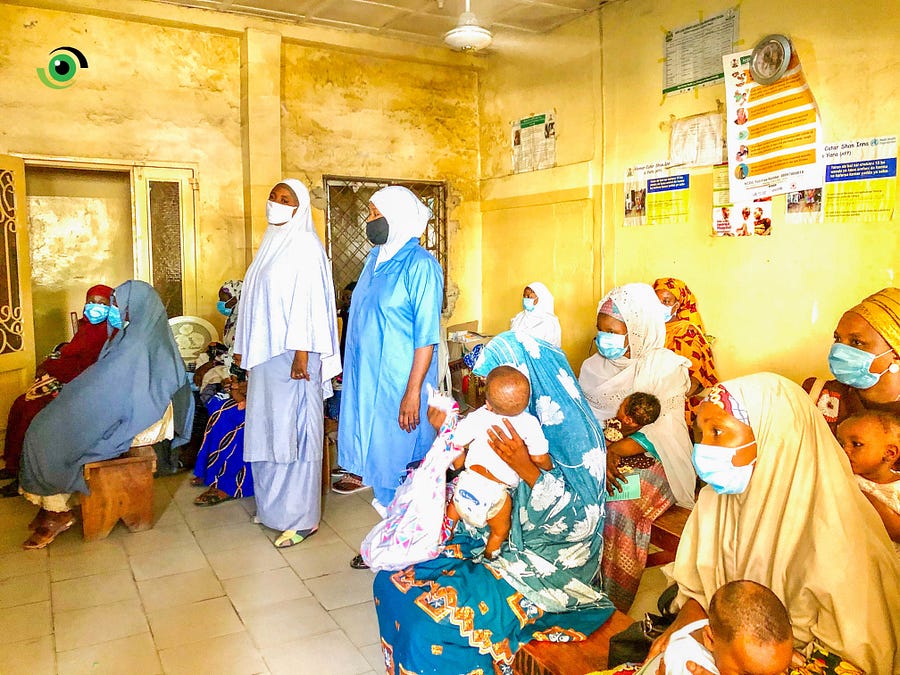
Fortunately, the hospital has a network of Volunteer Community Mobilisers (VCMs) engaged in 2014 and trained by the United Nations Children Fund (UNICEF) with support from the Bill and Melinda Gates Foundation (BMGF) to improve awareness and drive demand creation on maternal and child health services in communities in Kano state. ‘’We had to leverage on them to turn the tide’’ says Safiya Imam, the Routine Immunisation (RI) officer.
The VCMs, who are known members of the communities, went on house to house visits and informed women of the continuous provision of especially antenatal and immunisation services in the hospital. “We know our clients who were pregnant or breastfeeding and those who had young children before COVID-19. That made it easy for us to visit them in their households’’, says Firdausi Sa’ad, a VCM attached to the hospital. The confidence of community women in the health centres increased, and immunisation turnout improved. Women who were still apprehensive were accompanied to the hospital by the VCMs to receive immunisation for their children.
During the total lockdown, the women were encouraged by the VCMs to use their children’s immunisation card as a pass when passing through checkpoints. Rukaiya Idris, mother to five-month-old Abubakar Yunusa, says this worked, as she was allowed to proceed to the hospital when she presented her child’s immunisation card. The women continue to use the immunisation card to pass through the security checkpoints during the ease of lockdown, as immunisation is still carried out Mondays to Fridays. At the hospital, the VCMs help health workers to sort out immunisation cards and arrange seats to ensure physical distancing.
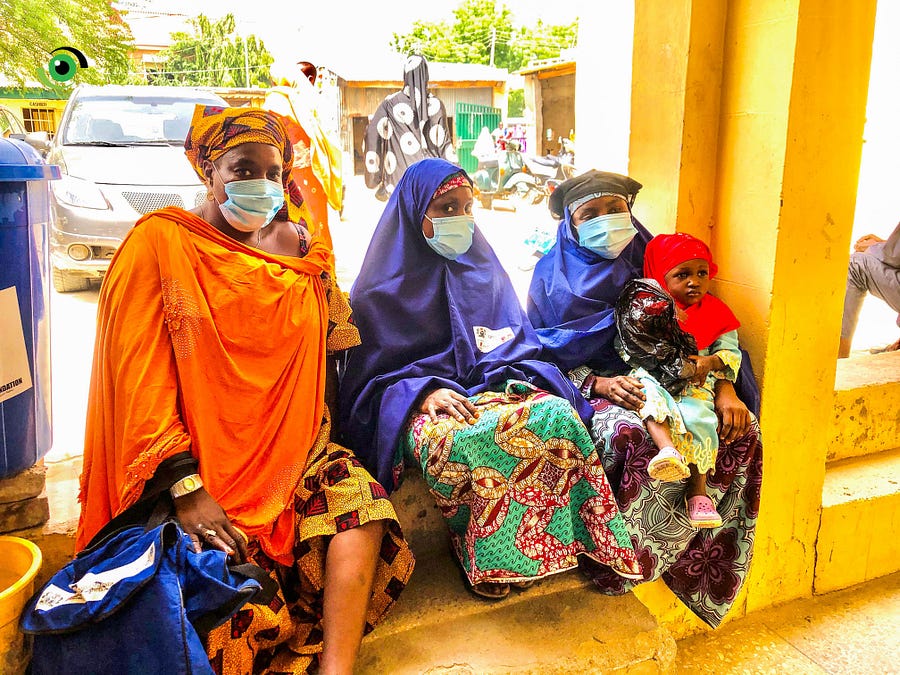
Ensuring Safety: Infusing IPC measures to continue immunisation services
Immunisation days are usually crowded days in health facilities and Nuhu Bammali Maternity Hospital is not an exception, as it serves many communities in the Kano Municipal Area Council. The hospital provided immunisation services daily before the COVID-19 pandemic, and with the outbreak, they put measures in place to ensure every child presented for immunisation is not turned back. ‘’If we turn any woman back, she may be demoralised and never return, so we have to accommodate them all while maintaining physical distancing’’ says Imam.
The waiting area outside the immunisation room was rearranged. Previously, more than 100 women used to sit on the benches, with at least seven women to a bench according to Dr. Halima Ibrahim, the pricipal medical officer of the hospital. The new arrangement reduced the capacity to not more than 50 women with their children, with each bench carrying no more than three women. The benches are also arranged with considerable distance. To accommodate the excess, more benches are placed in corridors throughout the hospital. In the immunisation room are also benches which sit two women per bench.
Handwashing and wearing of masks are other safety measures recommended by the Nigeria Centre for Disease Control (NCDC) to prevent the spread of COVID-19. There is a makeshift handwashing tap with a basin and soap outside the waiting area of the Maternity Hospital. As each woman arrives she uses the tap to wash both her hands and her child’s. The same arrangement is made outside the immunisation room. Women who come without a mask are given one at the hospital by the health workers and VCMs. ‘’Due to the economic situation, not every woman can afford a mask. So, we usually give them from the supplies we get for our own use from the government’’ says Dr. Ibrahim, adding ‘’we have to make sure everyone is protected.’’

Kano state government could complement the kind efforts of the health workers by making available enough masks for people who visit health facilities for healthcare who cannot afford the masks. That is the only way to ensure both the health workers and their clients remain protected from COVID-19 and other infectious diseases.
Relevant Messaging: Incorporating COVID-19 communications to immunisation days
Antenatal and immunisation days usually provide opportunities for health workers to have conversations with women about daily habits that will improve their wellbeing and that of their families. These conversations are tagged ‘’Health Talks’’, and usually take place as the women arrive just before the business of the day starts. With the realities of COVID-19 and the need to provide reliable information to the people, messaging about the disease has been included in the ‘’health talks’’ by health workers in Nuhu Bammali Maternity Hospital. Imam says they focus on hand washing and avoiding social gatherings such as wedding and naming ceremonies. ’’Even though most of the women are at home, men and children usually go out. The women need to understand the importance of their husbands and children washing their hands as they come home’’, she added. The health talks have been reduced from about 30 minutes to not more than 10 minutes, to minimise the time spent in the hospital by the women and their children. At the immunisation table, every woman is given a soap supplied by UNICEF after her child is vaccinated to encourage handwashing at home.
Sustaining the gains: Immunisation must continue despite COVID-19
“We have come a long way, we can’t allow the pandemic to take us back” says Maryam Umar Jalo, UNICEF’s VCM supervisor in Kano State. According to her, a lot of work has gone into improving immunisation coverage in Kano State which resulted in the state not having a case of polio for six years. VCMs played a major role, she said and leveraging on them to continue the work is of paramount importance. ‘’Having acquired the skills of social mobilisation overtime coupled with the trust they enjoy in their communities, there is no better time to leverage on them like now’’, she added.
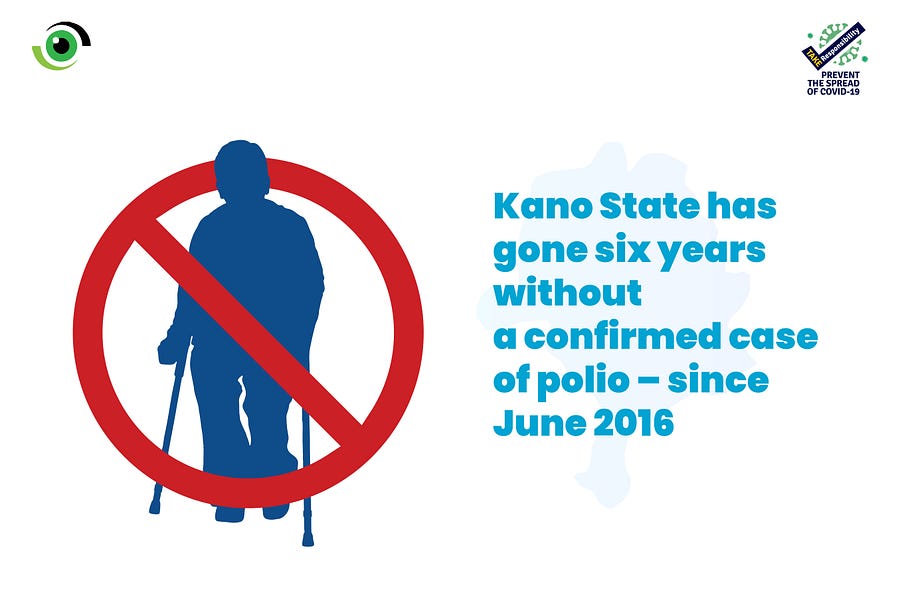
Habiba Bala, a VCM and polio survivor herself, says getting children immunised brings her and her colleagues personal fulfillment. This is why they go from house to house even during the lockdown to advocate for immunisation. It is why they come to the health facility every morning to provide support to health workers and encourage the mothers. Bala adds that seeing her, a polio survivor, advocating for children to be immunised gives inspiration to parents to bring their children for immunisation.
Nigeria achieved polio free status on June 18, 2020, a long, painstaking journey that succeeded in part because of improved Routine Immunisation (RI) among other factors. Kano State, once a hotbed of polio in Nigeria with poor immunisation coverage has been able to turn the tide, thanks to consistent strengthening of the state’s RI system over the last few years. According to Sa’adatu Ibrahim, the State Immunisation Officer (SIO), the news that Nigeria is polio free is just another impetus to the work as far as Kano State is concerned. ‘’Every RI activity from the PHCs to the state emergency routine immunisation centre (SERIC) is continuing despite the pandemic’’, she said, adding ‘’It is a marathon race, and the work does not stop’’.
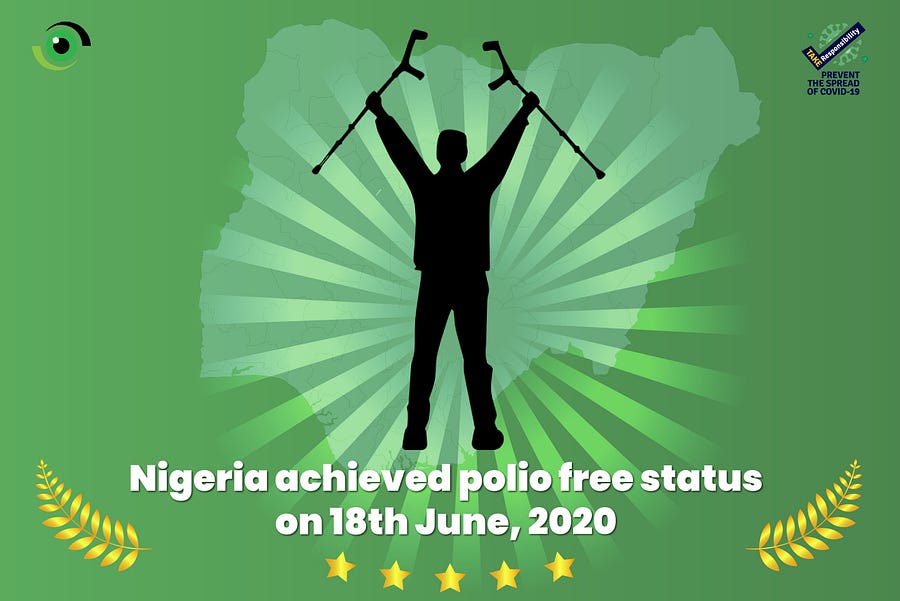
As the Nuhu Bammali Maternty example has shown, Nigeria must ensure that the COVID-19 pandemic does not disrupt immunisation of children. Besides polio, other vaccine preventable diseases that lead to child mortality are still with us. Federal, state and local governments must ensure that health facilities at all levels continue to provide immunisation in addition to other services. Personal Protective Equipment (PPE) should be made available to protect health workers and the public, and the welfare of health workers, including hazard allowances and other emoluments should be provided as they work to ensure that women and children receive the care they need.
In order to improve safety of both health workers and clients, Nuhu Bammali Maternity Hospital and other health facilities in Kano state could adopt a rolling immunisation method, which allows immunisation to go on as the mothers and children arrive. Waiting for a specific number of people before providing services could potentially increase chances of spreading COVID-19. Having 50 women with their children together with health workers and VCMs in the waiting area is a potential risk, even if physical distancing is observed. As the battle against COVID-19 continues, health facilities like Nuhu Bammali Maternity Hospital should be given credit for ensuring that Kano’s children remain protected by innovating ways for immunisation services to continue unhindered.
How have hospitals close to you innovated to continue services like immunisation despite the COVID-19 pandemic? Comment below, or let us know on social media, @nighealthwatch on Twitter, or @nigeriahealthwatch on Facebook and Instagram.


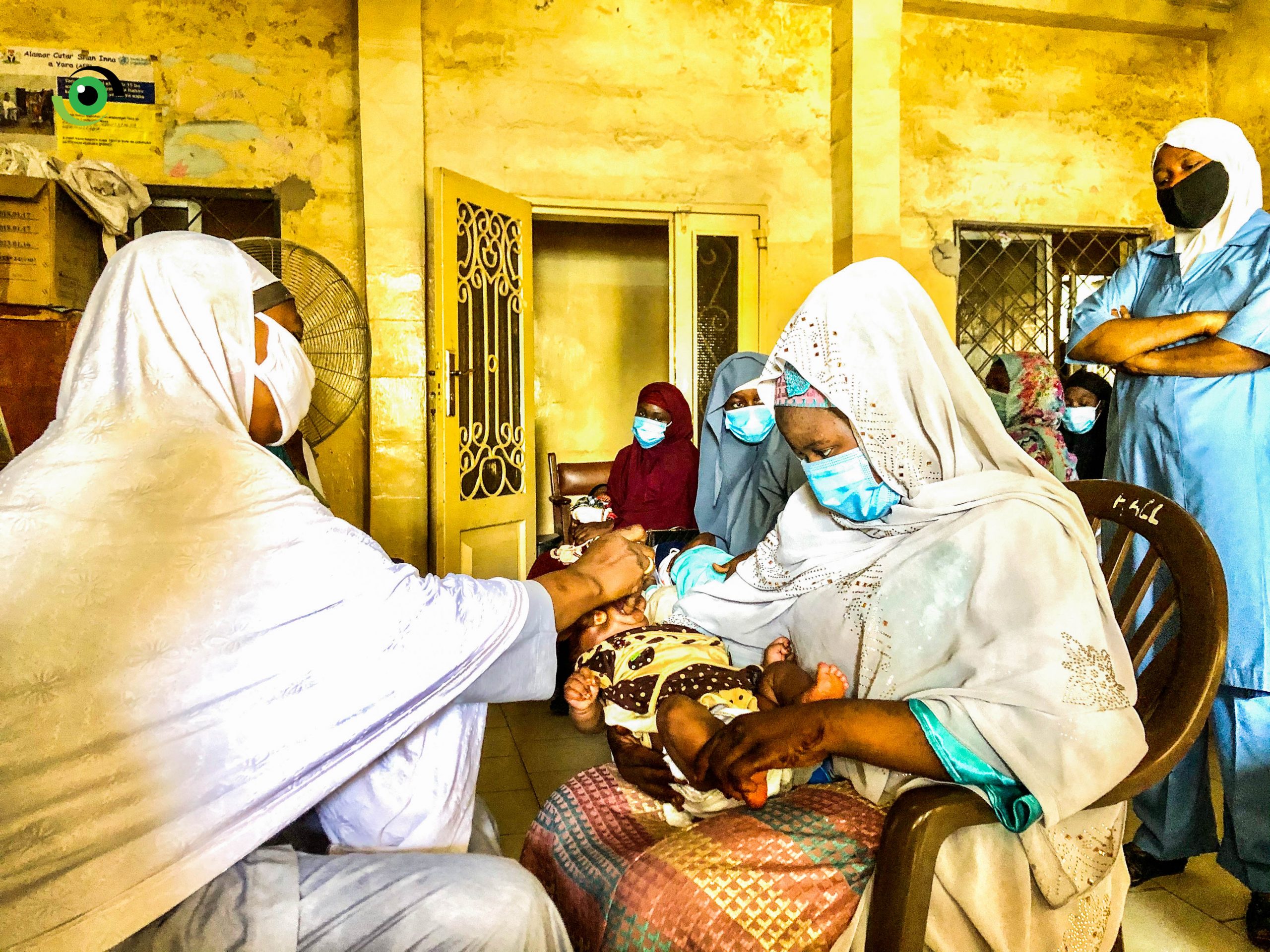
Imam & Idris you made a good job keep it up on communicating people on health achievement in BNMC Kofar Nassarawa.